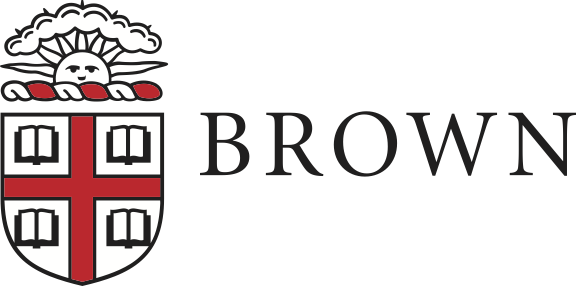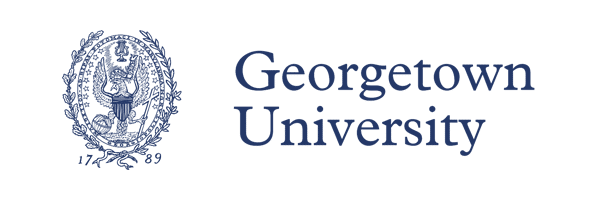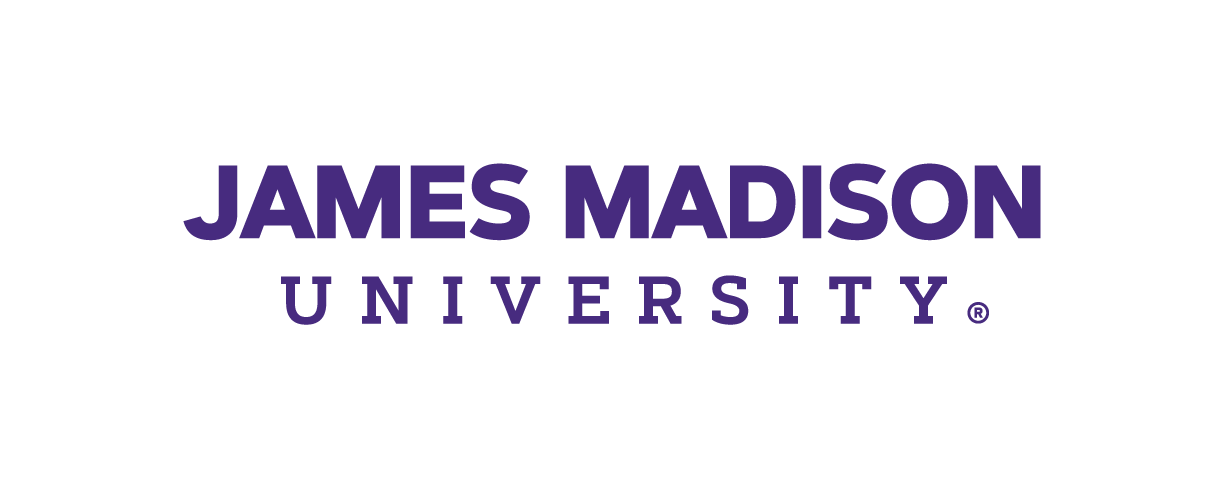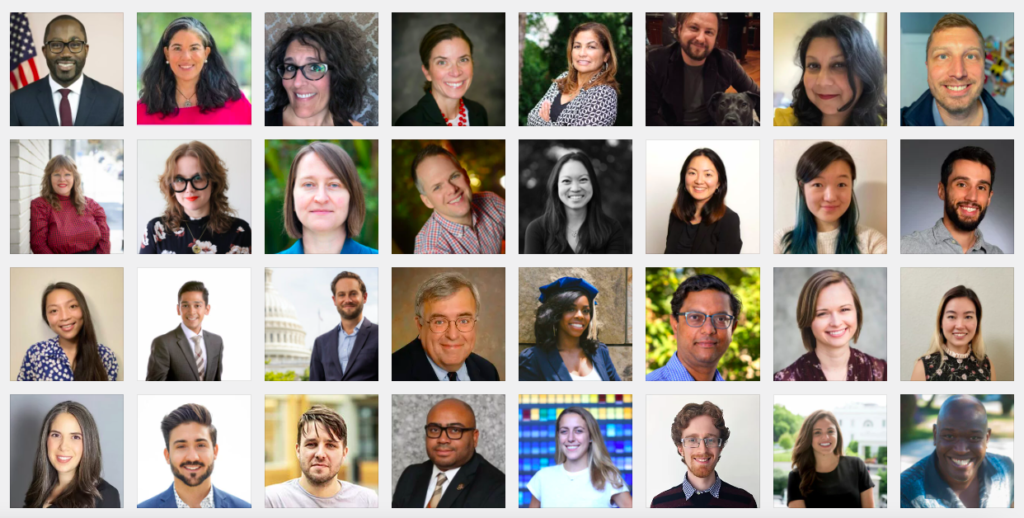
Announcing the Year 6 Grantees
The Public Interest Technology University Network (PIT-UN) is pleased to announce our 2024 Network Challenge Grantees, whose public interest technology (#PIT) projects will advance equitable innovation in technology across academia, government and civil society.
In its sixth year, the Network Challenge will distribute just under $1 million to 10 projects led by PIT-UN members.
Year 6 Issue Areas
The 2024 projects span a wide range of PIT issue areas, including:
- Environmental, climate and sustainability technology
- Policy partnerships with state and local government
- Storytelling about public interest data science, AI and emerging technologies
- The intersection of gender and technology in the pursuit of justice and equity
Year 6 Impact
The 2024 projects center the needs of communities that have historically been excluded from technology design, workforce and policy, and will empower communities through partnerships with minority-serving institutions, local and state government and nonprofits.
With ongoing support from PIT-UN and their 2024 Network Challenge cohort, grantees will create valuable models to continue innovating the field of PIT, including:
- New courses and curricula
- Internships, fellowships and bootcamps
- Playbooks and toolkits
- Innovation hubs and workshops
- Pop-up events and publications
About the Network Challenge
The Network Challenge grants are exclusively available, via application, to members of PIT-UN, a network of 63 diverse academic institutions working to strengthen public interest technology as a discipline and a career. Since 2019, the Network Challenge has provided over $16 million to 154 projects that have built new courses, research centers, community and government partnerships, certificates and degrees, internships, fellowships and more.
Applications to the Network Challenge are reviewed by an Evaluation Committee of PIT leaders from across industry, government, nonprofits and academia with final selection determined by an Advisory Board of funders. We want to thank this cohort of evaluators for their thoughtful and critical contributions to this process.
2024 Grantees
Tech Policy Fellowship and Playbook
Principal Investigator: Suresh Venkatasubramanian
Network Challenge Focus Area: Career Pipeline & Placement
This project will empower students nationwide to explore tech policy and enable local governments to build tech capacity. Through a partnership with Paragon Policy Fellowship, this project will offer 150 students opportunities to work with state and local government officials to address a critical science and technology issue over a 12-week period. They also will develop a playbook to inspire future PIT-government partnerships.
Integrating Community Knowledge and Equity into Integrated Administrative Data Systems for Research and Education in Data Science for Social Impact
Principal Investigator: Francisca García-Cobián Richter
Network Challenge Focus Area: Educational Offerings
Building on the FAIR2 framework, this project will develop guidelines for addressing racial bias in Integrated Data Systems (IDS), a powerful resource that informs decision-making in social services. Findings will be the basis for an instructional module on IDS to be tested in PIT curricula across partnering institutions and a policy brief to inform IDS analytics.
Pipelines and Pop-ups: Generating Pathways into Careers in Public Interest Technology
Principal Investigators: Kathleen Cumiskey, Effie MacLachlan
Network Challenge Focus Area: Career Pipeline & Placement
Building on CUNY’s ongoing partnership with the nonprofit BetaNYC, this project will lay the groundwork for establishing publicly accessible tech credentials in PIT within the CUNY system and will position the CUNY Public Interest Tech Lab as a central innovation hub. It will also launch the NYC PIT Pop-Up to showcase exemplary cross-sector PIT practices and garner commitments from civic and workforce partners interested in building public interest careers.
Data Science for Health Equity and Environmental Resilience Bootcamp
Principal Investigators: Tatiyana Apanasovich, Huixia Judy Wang
Network Challenge Focus Area: Educational Offerings
This interdisciplinary educational initiative will leverage data science to tackle health equity and climate resilience while building partnerships and capacity with local minority-serving institutions. A diverse cohort of students from Trinity Washington University and the University of the District of Columbia will learn essential data science and career-building skills at a four-week summer bootcamp featuring engaging lectures, hands-on activities, and collaborative, interdisciplinary projects to address real-world public interest issues.
Bridging Communities and Development in Senegal and Washington, D.C.
Principal Investigators: Katherine Chandler, Rajesh Veeraraghava
Network Challenge Focus Area: Educational Offerings
This project will develop an experimental pedagogy that connects students in Washington and Senegal and teaches them to respond to global inequalities in technological systems. International affairs students from Georgetown University and undergraduate engineering students from the Dakar American University of Science and Technology will collaborate to address the needs of local, marginalized communities through a course, a summer internship, a workshop, and a final presentation with policymakers about how to create technological designs for people in both the United States and Senegal.
The Tech for Change Scholarship Grant
The Tech for Change Scholarship Grant to Howard University is supported by the Public Interest Technology University Network Fund (PIT-UN), a project of the New Venture Fund. PIT-UN was generously supported by Net App to launch this scholarship grant.
Community-Centered Planning for Mobility as Social Service
Principal Investigator: Youngbok Hong
Network Challenge Focus Area: Educational Offerings
The project will establish a workshop to bring community-centered planning to the emerging technology of autonomous vehicles (AV). The workshop will engage students and community members in planning, prototyping, testing, and evolving community-centered AV planning through public events. It also will create frameworks for ongoing capacity building, impact assessment, and community engagement.
STEM Research in the Public Interest Undergraduate Workshop
Principal Investigators: Emily York, Tolu Odumosu, Shannon Conley, Nadine Platcha
Network Challenge Focus Area: Educational Offerings
This seven-day summer workshop for STEM majors at JMU and Morgan State University will pilot an approach for incorporating PIT storytelling into capstone research. Students will learn how to authentically and ethically engage stakeholders while attending to the power and politics of problem-framing and expertise and practicing iterative data-driven decision-making and humanities-driven approaches to storytelling. Outcomes include a workshop model with accompanying materials for undergraduate STEM research and pedagogy.
Zine Lab: PIT-Engaged Communication for Gender Justice
Principal Investigators: Ryan Cheek, Erin Clark
Network Challenge Focus Area: Educational Offerings
The Zine Lab leverages zine-making, a historical countercultural form of publishing, as a public interest technology to instill communication, collaboration, and content creation skills that advance gender justice and promote technological equity. Scholars, students, and community partners at Missouri S&T and East Carolina University will produce four zines covering gender-affirming technologies, reproductive health care technologies, technologies affecting survivors of gender violence, and technologies affecting women and gender minorities on campus. Outcomes include a toolkit for educators with lesson plans, activities, and media resources.
Data Curation in the Public Interest: A New Model for PIT Workforce Development
Principal Investigator: Kelsey Badger
Network Challenge Focus Area: Career Pipeline & Placement
This project, partnering with clinicians from the Illinois Department of Children and Family Services Erikson Institute Early Childhood Project, will build data capacity in social impact organizations and create best practices in administrative data curation. Outcomes include a historical collection of curated administrative data on the developmental and service needs of vulnerable children; a playbook for expanding administrative data curation to other social impact organizations; and key recommendations for building data capacity in the frontline clinical workforce.











